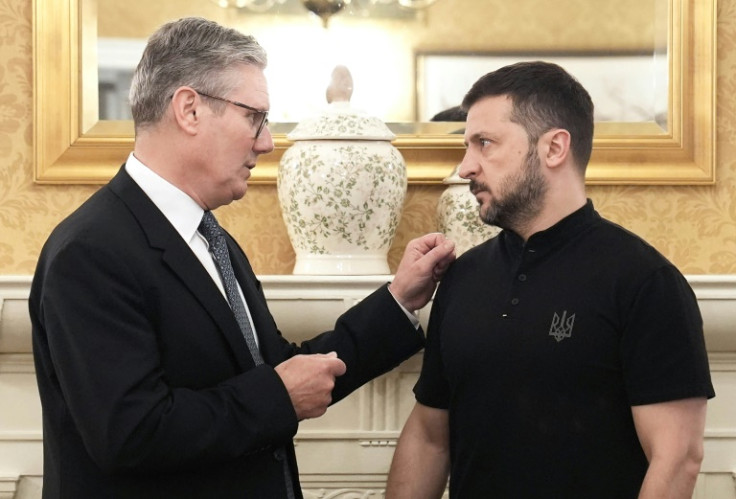New PM Starmer Promises Zelensky Steadfast UK Support

New UK Prime Minister Keir Starmer on Wednesday promised to keep up his country's steadfast support for Ukraine as he met President Volodymyr Zelensky in Washington.
The two met on the sidelines of the NATO summit days after Starmer's Labour Party swept out the Conservatives which had been in power for 14 years.
"I made it absolutely clear that as far as the UK is concerned, the change of government makes no difference to the support that we will provide," Starmer told reporters after what he called a "very good" meeting with Zelensky.
"We'd been united on this when we were in opposition, and it was really important to me to be able to affirm that face to face at the meeting," said Starmer, who already spoke to Zelensky by telephone after entering Downing Street.
Britain under three Conservative prime ministers has been among the staunchest supporters of Ukraine, playing a key role within NATO on military assistance.
The British unity on helping Ukraine stands in contrast to the United States, where Republican presidential contender Donald Trump has questioned the utility of billions of dollars in military aid, musing that he expects Russia to triumph.
Starmer will meet later Wednesday with US President Joe Biden at the White House.
Starmer noted that Labour, then under Clement Atlee, led Britain during the formation of NATO in 1949.
Starmer said he hoped the NATO summit would send a message to Russian President Vladimir Putin that the alliance is "bigger now than it's ever been, more united than it's ever been, and absolutely clear-eyed about the threat of Russian aggression."
A NATO summit in Britain in 2014 set a goal of each ally contributing at least two percent of GDP to defense, a long-running demand of the United States, by far the alliance's biggest contributor.
Only the United States, Britain and Greece then met the target but since the invasion of Ukraine the number has gone up to 23 members of the 32-nation alliance.
Britain's new defense secretary, John Healey, called for NATO to consider moving toward a 2.5 percent goal.
The growing threats around the world suggest that "all NATO nations are going to need to do more than simply two percent," Healey told reporters.
He said, whatever the result of the US election, Washington's priorities are "increasingly going to shift to the Indo-Pacific."
"European nations in NATO must do more of the heavy lifting," Healey said.
© Copyright AFP {{Year}}. All rights reserved.





















